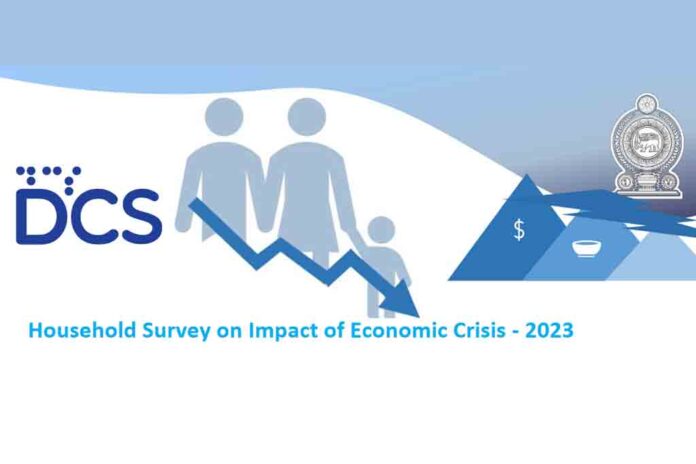Colombo (LNW): The recent economic crisis has significantly affected both income and expenditure for households, a recent survey undertaken by the Department of Census and Statistics (DCS) disclosed.
Titled “Household Survey on Impact of Economic Crisis – 2023,” the study highlights the challenges faced by households, prompting strategic adjustments and coping mechanisms.
The survey indicates that 60.5 per cent of households reported a decrease in total income, while 5.6 per cent experienced an increase, and 33.9 per cent saw no change despite the crisis.
In response to income decline, 6.6 per cent turned to secondary jobs or additional income sources, while 73.6 per cent did not adopt specific coping strategies.
Household expenditure also underwent changes, with 3.6 per cent reporting a decrease, 91.1 per cent indicating an increase, and 5.3 per cent noting no change.
Reasons for decreased monthly expenditure were diverse, with 77.0 per cent aligning expenses with reduced income.
Among those reporting increased monthly expenditure, 99.1 per cent cited rising food expenses as a significant factor.
Additionally, 97.2 per cent of households employed at least one coping strategy to manage their expenditure.
The economic crisis, considered one of the most challenging in Sri Lanka since Independence, was initiated by the Easter Sunday attacks in 2019 and exacerbated by the COVID-19 pandemic and subsequently by the failed administration.
Despite government measures to stabilise the situation, the tangible impact on households underscores the severity of the crisis.
Sri Lankan families faced challenges in managing daily activities, including income constraints, meeting commitments, and ensuring the well-being of family members.
Read the full report: http://www.statistics.gov.lk/WebReleases/HECS_Bulletin_Final

